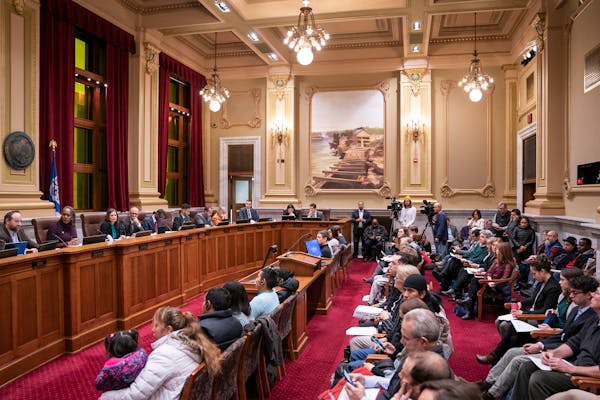The Minneapolis City Council on Thursday unanimously approved a sweeping set of changes to the city's zoning code that defines where different types of businesses and homes can be built.
The fourth-ever rewrite of the code is the culmination of a yearslong process to make the city's official rules reflect the priorities in its 2040 Comprehensive Plan, a progressive urban strategy to ensure more flexible zoning for housing and businesses and place increased restrictions on heavy industry.
The entire plan remains subject to a legal challenge that could disrupt the new zoning code's implementation in July.
The goal, according to supporters, is to bolster the city's quality of life and erode historic injustices against the poor and communities of color. The changes approved Thursday essentially represent the final step in bringing Minneapolis' technical rules and regulations into line with that goal.
At the core of the approved changes is a new citywide zoning map and accompanying language that dictates where things such as multi-family housing, retail stores and coffee shops can be built.
The map is consistent with the city's first-in-the-nation decision several years ago to eliminate single-family zoning. Significantly for those seeking environmental justice, the plan does not allow for expansion of industries that create the most pollution.
"Historically, zoning has been an institutional vehicle for racist and classist policymaking. Minneapolis elected officials have an obligation to address this problem, and today they took a major step forward," said Evan Mulholland, healthy communities program director for the Minnesota Center for Environmental Advocacy.

Want to share info with the Star Tribune? How to do it securely

'Safe recovery sites' would offer syringes, naloxone and more to people using drugs. The plan could be in peril.
New Minnesota GOP leaders seek peace with party's anti-establishment wing

Who is Republican Lisa Demuth, Minnesota's first House speaker of color?

